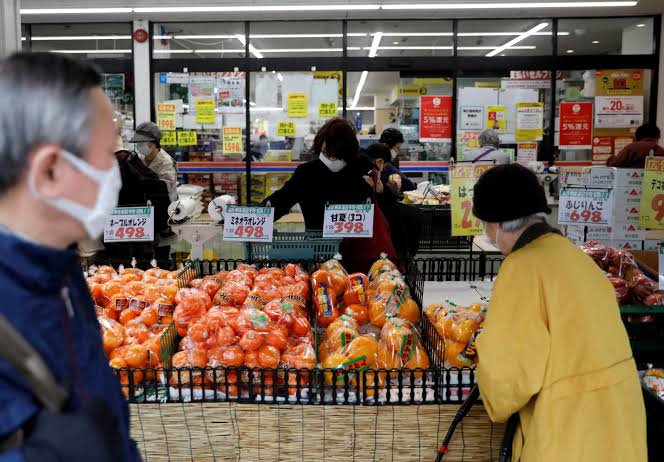Japan’s core consumer prices rise 3.1% in July from year earlier
Japan’s core consumer prices in July rose 3.1 percent from a year earlier, well above the Bank of Japan’s 2 percent target, as food and service price hikes kept the overall inflationary trend intact, government data showed Friday.
The nationwide core consumer price index, excluding volatile fresh food items, rose for the 23rd straight month, amid emerging signs of entrenched inflation hurting consumer sentiment.
The key gauge of inflation slowed from 3.3 percent in June as the impact of higher fuel costs, a major driver behind the recent bout of cost-push inflation, has been waning, according to the Ministry of Internal Affairs and Communications
The gauge remained above the BOJ’s 2 percent target for the 16th straight month.
The core-core CPI, which reflects the underlying inflationary trend by stripping away volatile energy and fresh food prices, rose 4.3 percent, accelerating from 4.2 percent in the previous month.
“With inflation entrenched and real wages falling, there is concern about the negative impact on private consumption,” said Shinichiro Kobayashi, a senior economist at Mitsubishi UFJ Research and Consulting.
“The risk is that higher goods prices will prompt consumers to start curbing spending on services, which has so far been supported by pent-up demand,” he said.
Japan’s economy grew for the third straight quarter in April to June but private consumption, which accounts for more than half of gross domestic product, unexpectedly fell even as strong catch-up demand for dining out and traveling remained.
Food prices jumped 9.2 percent while durable goods saw a 6.0 percent increase.
Service prices increased 2.0 percent, marking the sharpest gain in roughly three decades without the effects of past consumption tax hikes, after price hikes were largely seen among goods.
Accommodation fees jumped 15.1 percent during the summer holiday season, partly because of some curtailment of government subsidy programs aimed at spurring tourism in the aftermath of the COVID-19 pandemic.
Mobile communication fees surged 10.2 percent, accelerating at the fastest pace since comparable data became available in 2001.
Energy prices dropped 8.7 percent, aided by government subsidies to curb household utility bills that helped pushed down the core CPI by around 1 percentage point.
The BOJ has already lifted its inflation outlook for fiscal 2023, forecasting the core CPI will rise 2.5 percent but undershoot its 2 percent target in the following two years.


